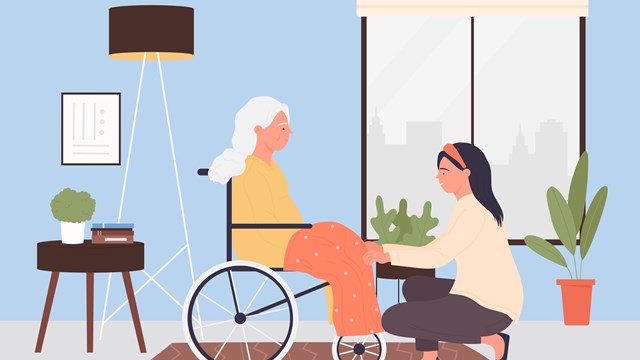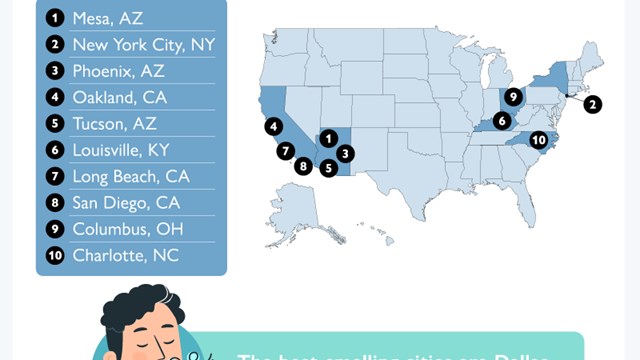According to a story in the New York Daily News on August 18, a construction worker died after apparently hanging himself from a fifth-floor window at a Queens condominium complex. By any estimation, this event was tragic, and surely devastating for the friends and family of the deceased. But an incident like this doesn't happen in a vacuum, and its effects tend to reverberate throughout the greater community at large. And while such shocking deaths are rare, unfortunate circumstances of a lesser stripe are not.
So this begs the question: on whom does it fall to restore community morale in the wake of such an incident? Do co-op and condo boards or homeowner's associations take on that responsibility? Is it left to random individuals to step up and act as a guiding light during a dark time? Or do both boards and residents alike simply turn a blind eye and wait for the mood to alleviate?
Different Strokes
“Honestly, boards of both condos and co-ops are as different as snowflakes,” says Andrew P. Brucker, a partner at the law firm of Montgomery McCracken Walker & Rhoads, LLP, which has offices in Pennsylvania, New York, New Jersey and Delaware. “Some associations go overboard when there is a tragedy, and some do nothing.”
In his experience as property manager, Robin B. Steiner, a managing member of RMR Residential Realty in White Plains, New York, has mostly encountered the latter. “Personal matters generally do not come before the board, save for when collection issues are involved. With those, there is generally no sense of empathy. But in the case of other tragedies, at most I've encountered a basket of fruit or a sympathy card sent.”
But it truly takes all kinds. Neil Davidowitz, Esq., president of Orsid Realty Corp., a New York City real estate management firm, says that he has seen “boards hold and participate in memorial services and make contributions to charities in the memory of certain residents. I'd say that it's actually quite common for boards to come to someone's aid in times of crisis.”
Ties That Bind
A somewhat obvious variable at play in regard to how boards and residents react to tragedy is how familiar those not afflicted are with the victim (assuming that the situation involves a specific victim). Long-time board members, residents or staffers tend to get an outpouring of support.
“Recently, an attorney who'd been in one of our properties for 30 years passed away suddenly, and the board president sent out a beautiful letter to all shareholders,” recounts Steven Greenbaum, director of property management at Long Island-based property management firm Mark Greenberg Real Estate (MGRE). “Then, at the annual meeting, that president gave a moving eulogy and held a moment of silence. It was really touching and very nice. The deceased was someone who lived in that building when it was a tenants' group through the co-op conversion and then here we were, 30 years later. The whole thing was very nice and heartfelt.
“We also had a board president named Pearl, the de facto matriarch of her property, who passed away some years ago,” Greenbaum continues. “She didn't have a great deal of friends and was quite old, but her funeral was packed with shareholders and young people from the building. They went on to dedicate a bench in her name, and a picture of her hangs in the management office.”
Associations often take note of the contributions of their staff members as well, and pull together to support them during tough times. “Either in event of illness, or the passing of a staff member or a staff member's family member, I've seen associations circle the wagons and show tremendous empathy, support and charity in times of need,” says Davidowitz. “I feel as if that's an attribute unique to the co-op and condo world; there's a really interesting relationship there between staff members and residents. From doormen to supers to porters to handymen, staff are often treated as part of the family, and I've seen buildings and boards go above and beyond to support them.”
Even when events transcend the immediately local, boards will engage. “I have seen boards send out letters soliciting money for a good cause, or even collecting food in conjunction with the Red Cross during a city-wide tragedy,” says Brucker. “Of course, those would have to be major, on the level of 9/11 or a hurricane, to spur such action from a board.”
So while it's by no means their fiduciary duty, and it's not uniform from condo to condo and co-op to co-op, boards do often step up and reveal their true colors during times of strife, both physical and emotional. As Davidowitz noted above, the nature of communal living causes strong bonds to form, even in a city with an oft-impersonal reputation like New York. So maybe check in with your neighbors today, even if only to see how they're doing. You never know when a small kindness can have a major impact.
Mike Odenthal is a staff writer for The Cooperator and other publications.







Leave a Comment